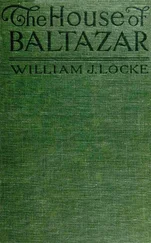William Locke - The Rough Road
Здесь есть возможность читать онлайн «William Locke - The Rough Road» — ознакомительный отрывок электронной книги совершенно бесплатно, а после прочтения отрывка купить полную версию. В некоторых случаях можно слушать аудио, скачать через торрент в формате fb2 и присутствует краткое содержание. Жанр: foreign_prose, на английском языке. Описание произведения, (предисловие) а так же отзывы посетителей доступны на портале библиотеки ЛибКат.
- Название:The Rough Road
- Автор:
- Жанр:
- Год:неизвестен
- ISBN:нет данных
- Рейтинг книги:4 / 5. Голосов: 1
-
Избранное:Добавить в избранное
- Отзывы:
-
Ваша оценка:
- 80
- 1
- 2
- 3
- 4
- 5
The Rough Road: краткое содержание, описание и аннотация
Предлагаем к чтению аннотацию, описание, краткое содержание или предисловие (зависит от того, что написал сам автор книги «The Rough Road»). Если вы не нашли необходимую информацию о книге — напишите в комментариях, мы постараемся отыскать её.
The Rough Road — читать онлайн ознакомительный отрывок
Ниже представлен текст книги, разбитый по страницам. Система сохранения места последней прочитанной страницы, позволяет с удобством читать онлайн бесплатно книгу «The Rough Road», без необходимости каждый раз заново искать на чём Вы остановились. Поставьте закладку, и сможете в любой момент перейти на страницу, на которой закончили чтение.
Интервал:
Закладка:
William John Locke
The Rough Road
CHAPTER I
This is the story of Doggie Trevor. It tells of his doings and of a girl in England and a girl in France. Chiefly it is concerned with the influences that enabled him to win through the war. Doggie Trevor did not get the Victoria Cross. He got no cross or distinction whatever. He did not even attain the sorrowful glory of a little white cross above his grave on the Western Front. Doggie was no hero of romance, ancient or modern. But he went through with it and is alive to tell the tale.
The brutal of his acquaintance gave him the name of “Doggie” years before the war was ever thought of, because he had been brought up from babyhood like a toy Pom. The almost freak offspring of elderly parents, he had the rough world against him from birth. His father died before he had cut a tooth. His mother was old enough to be his grandmother. She had the intense maternal instinct and the brain, such as it is, of an earwig. She wrapped Doggie – his real name was James Marmaduke – in cotton-wool, and kept him so until he was almost a grown man. Doggie had never a chance. She brought him up like a toy Pom until he was twenty-one – and then she died. Doggie being comfortably off, continued the maternal tradition and kept on bringing himself up like a toy Pom. He did not know what else to do. Then, when he was five-and-twenty, he found himself at the edge of the world gazing in timorous starkness down into the abyss of the Great War. Something kicked him over the brink and sent him sprawling into the thick of it.
That the world knows little of its greatest men is a commonplace among silly aphorisms. With far more justice it may be stated that of its least men the world knows nothing and cares less. Yet the Doggies of the War, who on the cry of “Havoc!” have been let loose, much to their own and everybody else’s stupefaction, deserve the passing tribute sometimes, poor fellows, of a sigh, sometimes of a smile, often of a cheer. Very few of them – very few, at any rate, of the English Doggies – have tucked their little tails between their legs and run away. Once a brawny humorist wrote to Doggie Trevor “ Sursum cauda. ” Doggie happened to be at the time in a water-logged front trench in Flanders and the writer basking in the mild sunshine of Simla with his Territorial regiment. Doggie, bidden by the Hedonist of circumstance to up with his tail, felt like a scorpion.
Such feelings, however, will be more adequately dealt with hereafter. For the moment, it is only essential to obtain a general view of the type to which Trevor belonged.
If there is one spot in England where the present is the past, where the future is still more of the past, where the past wraps you and enfolds you in the dreamy mist of Gothic beauty, where the lazy meadows sloping riverward deny the passage of the centuries, where the very clouds are secular, it is the cathedral town of Durdlebury. No factory chimneys defile with their smoke its calm air, or defy its august and heaven-searching spires. No rabble of factory hands shocks its few and sedate streets. Divine Providence, according to the devout, and the crass stupidity of the local authorities seventy years ago, according to progressive minds, turned the main line of railway twenty miles from the sacred spot. So that to this year of grace it is the very devil of a business to find out, from Bradshaw, how to get to Durdlebury, and, having found, to get there. As for getting away, God help you! But whoever wanted to get away from Durdlebury, except the Bishop? In pre-motor days he used to grumble tremendously and threaten the House of Lords with Railway Bills and try to blackmail the Government with dark hints of resignation, and so he lived and threatened and made his wearisome diocesan round of visits and died. But now he has his episcopal motor-car, which has deprived him of his grievances.
In the Close of Durdlebury, greenswarded, silent, sentinelled by immemorial elms that guard the dignified Gothic dwellings of the cathedral dignitaries, was James Marmaduke Trevor born. His father, a man of private fortune, was Canon of Durdlebury. For many years he lived in the most commodious canonical house in the Close with his sisters Sophia and Sarah. In the course of time a new Dean, Dr. Conover, was appointed to Durdlebury, and, restless innovator that he was, underpinned the North Transept and split up Canon Trevor’s home by marrying Sophia. Then Sarah, bitten by the madness, committed abrupt matrimony with the Rev. Vernon Manningtree, Rector of Durdlebury. Canon Trevor, many years older than his sisters, remained for some months in bewildered loneliness, until one day he found himself standing in front of the cathedral altar with Miss Mathilda Jessup, while the Bishop pronounced over them words diabolically strange yet ecclesiastically familiar. Miss Jessup, thus transformed into Mrs. Trevor, was a mature and comfortable maiden lady of ample means, the only and orphan daughter of a late Bishop of Durdlebury. Never had there been such a marrying and giving in marriage in the cathedral circle. Children were born in Decanal, Rectorial and Canonical homes. First a son to the Manningtrees, whom they named Oliver. Then a daughter to the Conovers. Then a son, named James Marmaduke, after the late Bishop Jessup, was born to the Trevors. The profane say that Canon Trevor, a profound patristic theologian and an enthusiastic palæontologist, couldn’t make head or tail of it all, and, unable to decide whether James Marmaduke should be attributed to Tertullian or the Neolithic period, expired in an agony of dubiety. At any rate, the poor man died. The widow, of necessity, moved from the Close, in order to make way for the new Canon, and betook herself with her babe to Denby Hall, the comfortable house on the outskirts of the town in which she had dwelt before her marriage.
The saturated essence of Durdlebury ran in Marmaduke’s blood: an honourable essence, a proud essence; an essence of all that is statically beautiful and dignified in English life; but an essence which, without admixture of wilder and more fluid elements, is apt to run thick and clog the arteries. Marmaduke was coddled from his birth. The Dean, then a breezy, energetic man, protested. Sarah Manningtree protested. But when the Dean’s eldest born died of diphtheria, Mrs. Trevor, in her heart, set down the death as a judgment on Sophia for criminal carelessness; and when young Oliver Manningtree grew up to be an intolerable young Turk and savage, she looked on Marmaduke and, thanking heaven that he was not as other boys were, enfolded him more than ever beneath her motherly wing. When Oliver went to school in the town and tore his clothes, and rolled in mud and punched other boys’ heads, Marmaduke remained at home under the educational charge of a governess. Oliver, lean and lanky and swift-eyed, swaggered through the streets unattended from the first day they sent him to a neighbouring kindergarten. As the months and years of his childish life passed, he grew more and more independent and vagabond. He swore blood brotherhood with a butcher-boy and, unknown to his pious parents, became the leader of a ferocious gang of pirates. Marmaduke, on the other hand, was never allowed to cross the road without feminine escort. Oliver had the profoundest contempt for Marmaduke. Being two years older, he kicked him whenever he had a chance. Marmaduke loathed him. Marmaduke shrank into Miss Gunter, the governess’s, skirts whenever he saw him. Mrs. Trevor therefore regarded Oliver as the youthful incarnation of Beelzebub, and quarrelled bitterly with her sister-in-law.
One day, Oliver, with three or four of his piratical friends, met Marmaduke and Miss Gunter and a little toy terrier in the High Street. The toy terrier was attached by a lead to Miss Gunter on the one side, Marmaduke by a hand on the other. Oliver straddled rudely across the path.
Читать дальшеИнтервал:
Закладка:
Похожие книги на «The Rough Road»
Представляем Вашему вниманию похожие книги на «The Rough Road» списком для выбора. Мы отобрали схожую по названию и смыслу литературу в надежде предоставить читателям больше вариантов отыскать новые, интересные, ещё непрочитанные произведения.
Обсуждение, отзывы о книге «The Rough Road» и просто собственные мнения читателей. Оставьте ваши комментарии, напишите, что Вы думаете о произведении, его смысле или главных героях. Укажите что конкретно понравилось, а что нет, и почему Вы так считаете.












